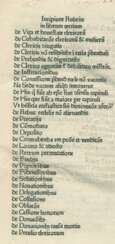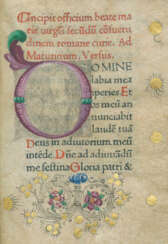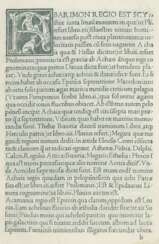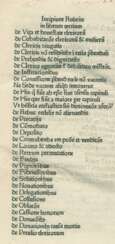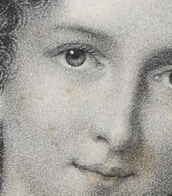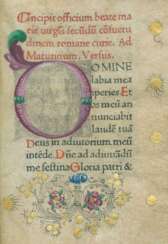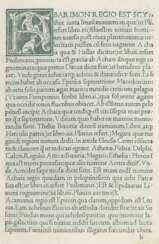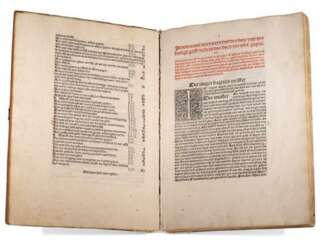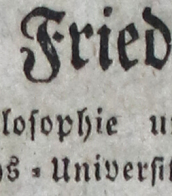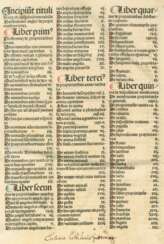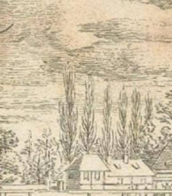istc
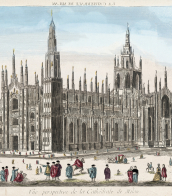
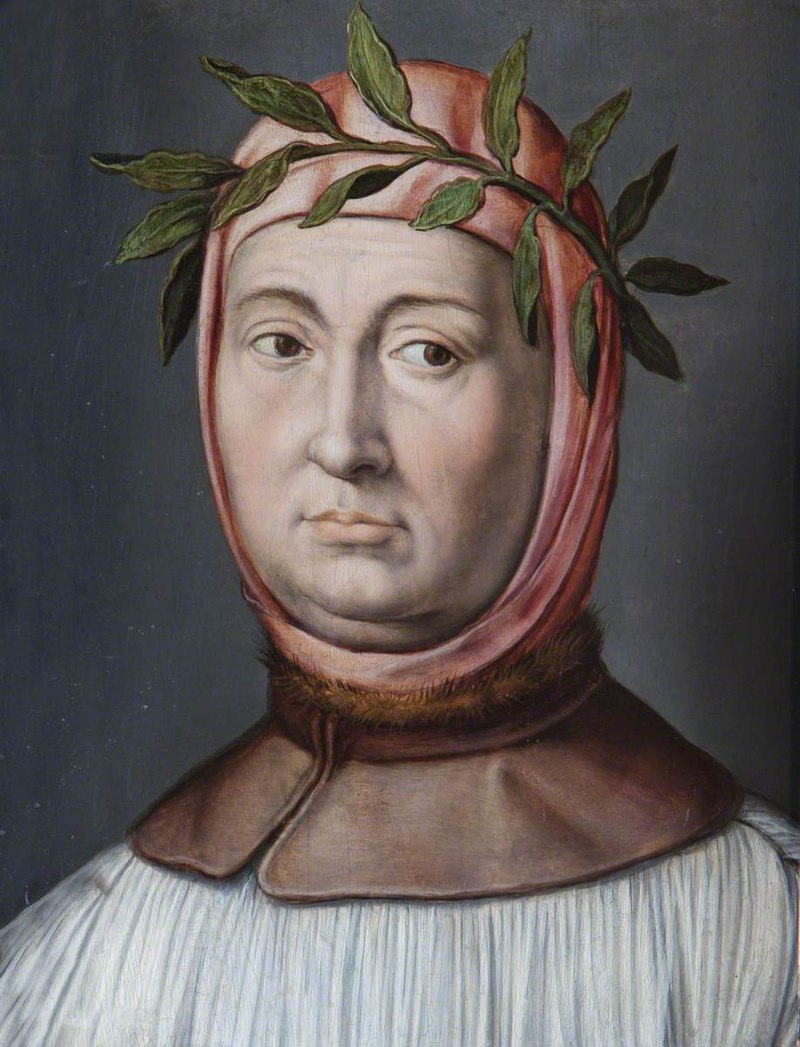
Giovanni Boccaccio was an Italian humanist scholar, writer and poet of the Early Renaissance.
Boccaccio was the son of a Tuscan merchant who sent him to Naples to study business and law. Giovanni revolved in aristocratic circles there and became acquainted with Petrarch's work. In Naples he wrote his first works of poetry, raising the poetry of Italian minstrelsy to literature. Returning to Florence in 1341, Boccaccio, in addition to the famous book of witty short stories "Decameron" (1348-1353), created many poems, allegories and prose works.
In 1350 at Bocaccio's house in Florence, he met Petrarch, which developed into a friendship. In the last years of his life he concentrated on scholarly works in Latin, including writing De montibus, silvis, fontibus, lacubus..., - this alphabetical list of mountains, forests, rivers and lakes was based on the writings of ancient poets. His other Latin works include the philosophical and historical De claris mulieribus (a collection of biographies of famous women, 1360-74) and De casibus virorum illustrium (On the Fates of Famous Men, 1355-74).
Giovanni Boccaccio had a significant influence on the development of all European culture through his work. Together with Petrarch, he laid the foundations of Renaissance humanism and raised popular literature to the level and status of the ancient classics.


William Shakespeare was a British poet and playwright and writer.
William's father, John Shakespeare, was a merchant and official in Stratford. There are reports that he was a sailor for a time before joining a theater company in London. Beginning in the 1590s, Shakespeare began writing plays, and in 1593 he published a poem, Venus and Adonis, which became popular. He dedicated it to the Duke of Southampton, who was a philanthropist and patron of talent, and soon his business was booming.
From 1592 to 1600 Shakespeare wrote his dramas and romantic comedies "Richard III", "The Taming of the Shrew", "Romeo and Juliet", "A Midsummer Night's Dream" and "The Merchant of Venice", as well as the comedies "Much Ado About Nothing", "Twelfth Night" and the tragedy "Julius Caesar". The playwright's business was so successful that he even bought a large house in Stratford. In 1599, Shakespeare became one of the owners, playwright and actor of the new theater "Globe". In 1603 King James took Shakespeare's troupe under his direct patronage. In the mature period, the great playwright turned to tragedies, there were "Hamlet", "Othello", "King Lear", "Macbeth" and others.
Although in the 19th century researchers had some doubts about the authorship of many of these works, William Shakespeare is considered the greatest English playwright, one of the best playwrights in the world. His plays have been translated into all major languages and to this day form the basis of the world theatrical repertoire, most of them have been screened many times. According to the Guinness Book of Records, Shakespeare remains the world's best-selling playwright, and his plays and poems have sold more than 4 billion copies in the nearly 400 years since his death.

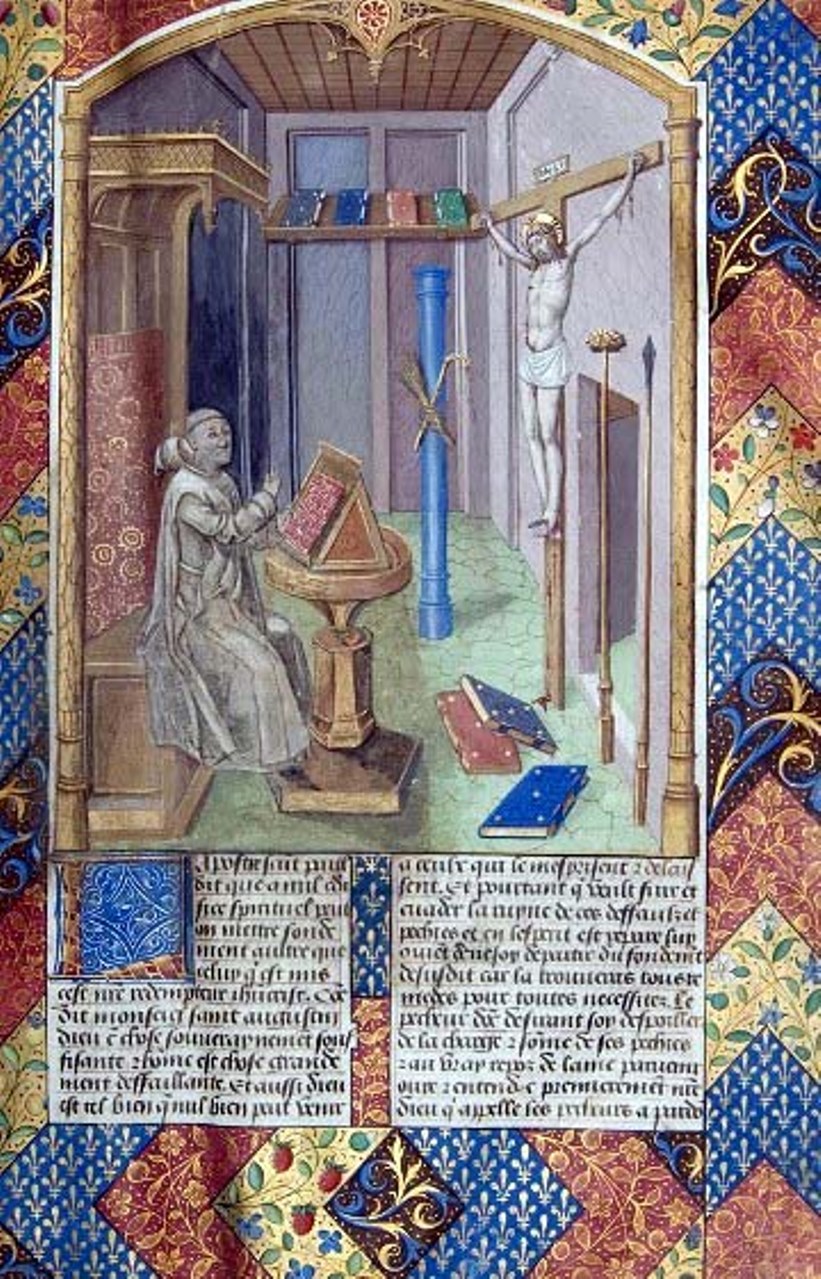
Ludolf of Saxony (German: Ludolf von Sachsen), also known as Ludolf der Kartäuser, was a Roman Catholic theologian and Christian writer of German origin.
The major work of his life was Vita Christi (Life of Christ), also known as Speculum vitae Christi (Mirror of the Life of Christ), completed in 1374. The book is not only a biography of Jesus, but also a history, commentaries by church fathers, and a series of dogmatic and moral reflections, spiritual teachings, meditations, and prayers. This work was very popular in the fourteenth and fifteenth centuries and was first printed in the 1470s.

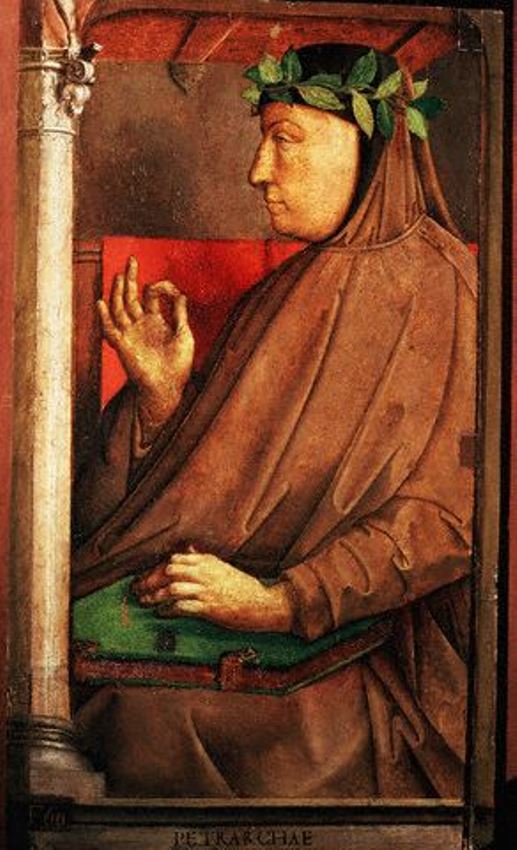
Francesco Petrarca was an Italian poet, the founder of European humanism, and one of the greatest figures of the Italian Proto-Renaissance.
Petrarca studied at the University of Montpellier, then at the University of Bologna, in 1330 entered the service of Cardinal Giovanni Colonna as a chaplain. Then he made various pilgrimages, in 1353 settled in Milan at the court of Archbishop Giovanni Visconti, and carried out important diplomatic missions. Petrarca spent the last years of his life in the village of Arquà near Padua.
Since 1337 Petrarca began to write literary works: these were historical poems in Latin and lyric poems in Italian. In 1327 Francesco saw Laura for the first time, undivided love for which was the main source of his poetry. Laura was for him an object of adoration and pure platonic love. Despite the fact that they saw each other only a few times and were not really acquainted, Petrarca carried this feeling through his life.
Passionate about ancient culture, Petrarch deciphered and commented on the manuscripts of Cicero, Quintilian and others. He opposed medieval scholasticism interest in the earthly purpose of man, argued that the nobility of man depends not on the nobility of origin, but on his virtue. Petrarca highly valued the mind and creative abilities of man, and these humanistic ideas found vivid expression in his lyrics, revealing the inner world of man. Petrarca's work laid the foundation for the formation of Italian humanism. He also dreamed of the unification of Italy, the revival of the former greatness of Rome.
Francesco Petrarca had one of the richest libraries of his time, where ancient Roman writers, poets, historians, philosophers were represented. He was one of the brightest representatives of the culture of the Renaissance. Petrarca's works are characterized by perfection of form and musicality of verse, which played a significant role in the development of European poetry. Among his works are the poem "Africa" about the Second Punic War in Latin, allegorical pastoral eclogues "Bucolics" (1346/1357), a book of songs "My Italy", "Noble Spirit", sonnets, etc.

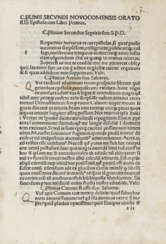



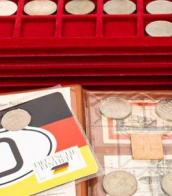



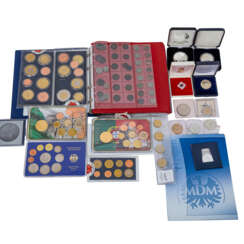


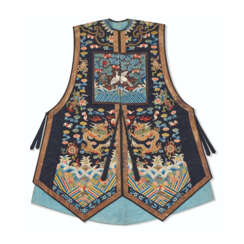

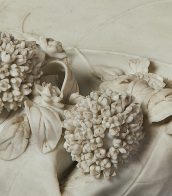
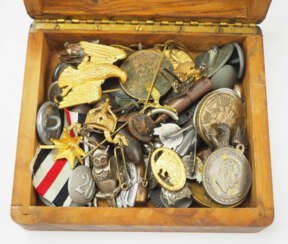




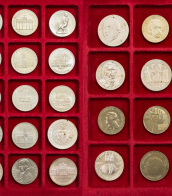


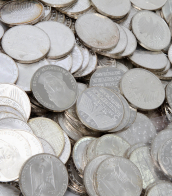



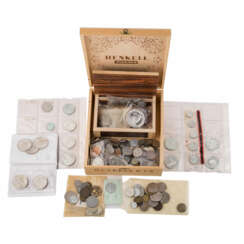


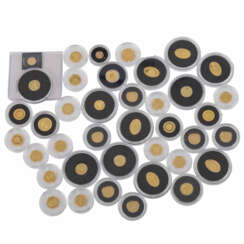


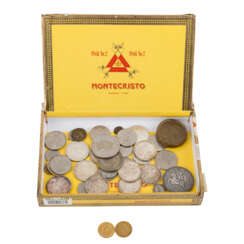

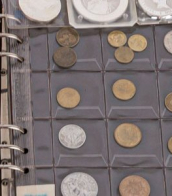
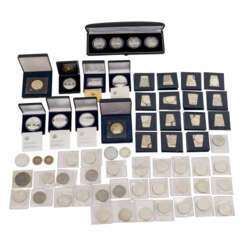

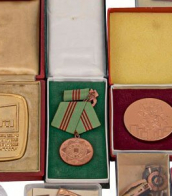


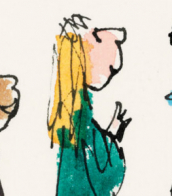
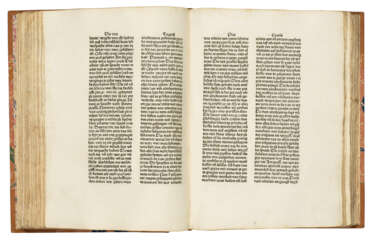

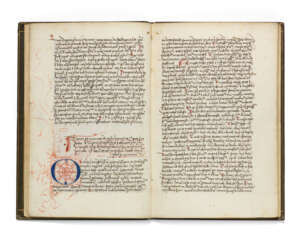

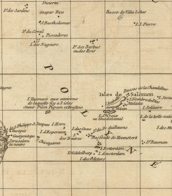


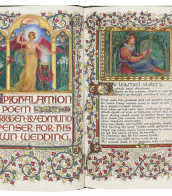
![Tabulae Directionum et Profectionum, [bound with:] Astrolabium planum in Tabulis ascendens](/assets/image/picture_1696166/5eeb1/2e044e7a4f96bf66902c144e51a4b2171633096800jpg__fix_374_244.jpeg)
![Tabulae Directionum et Profectionum, [bound with:] Astrolabium planum in Tabulis ascendens](https://veryimportantlot.com/assets/image/picture_1696166/5eeb1/2e044e7a4f96bf66902c144e51a4b2171633096800jpg__fix_374_244.jpeg)


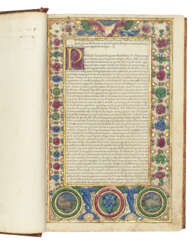

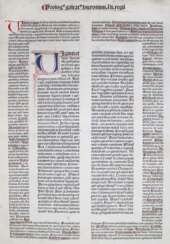

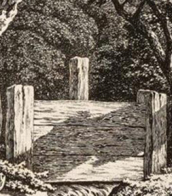
![[Boccaccio, Giovanni. Il Filocolo, deutsch:]](/assets/image/picture_4051308/9ef81/xhhsrcldqvf9mbkoxjbw4vp-pz6opxu2kkg2zw0vqjsa7utjpjewt5egkgws1zw1718713600jpg__fix_374_244.jpeg)
![[Boccaccio, Giovanni. Il Filocolo, deutsch:]](https://veryimportantlot.com/assets/image/picture_4051308/9ef81/xhhsrcldqvf9mbkoxjbw4vp-pz6opxu2kkg2zw0vqjsa7utjpjewt5egkgws1zw1718713600jpg__fix_374_244.jpeg)
